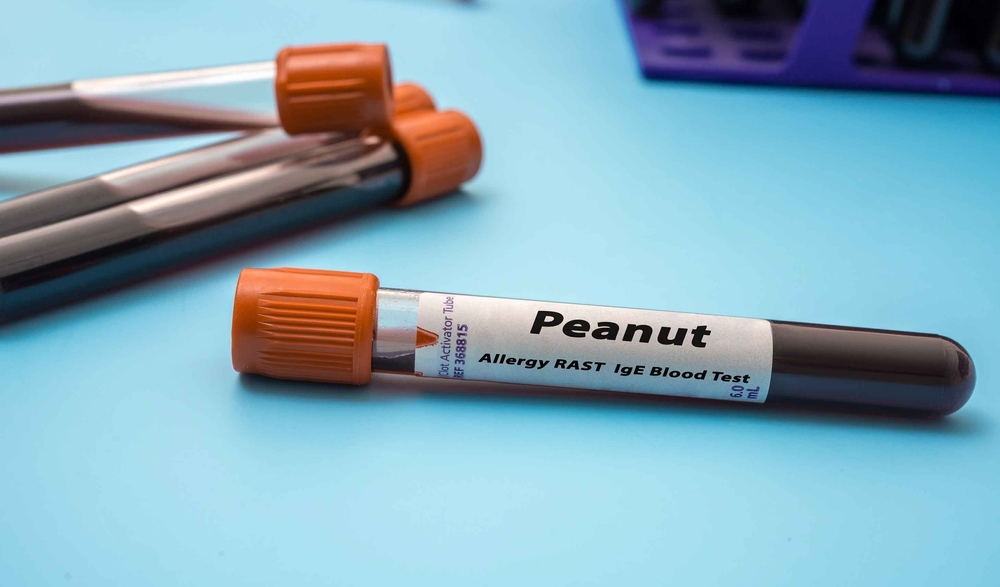
Eating peanuts and dairy can make your baby allergic to them
The characteristic and genetic development of any disease in a fetus depends on an intricate interaction between genetic, environmental and non-specific adjuvant factors such as allergens, air pollution and infections. Generally, allergies are related to the parent's genetic makeup which can be passed down to the baby. Along with that maternal nutrient intake during pregnancy and lactation has a heavy influence on the development of allergic diseases. While there’s no evidence that an allergy such as peanuts, milk or shellfish can be passed directly from parent to child, there are still risks of these genetic mutations being passed on on rare occasions. Recent research has found that introducing foods to infants early may help them develop a tolerance towards different foods. You should be in constant touch with a pediatrician if your children are at risk for the development of atopic disease (high-risk infants) or show early symptoms of allergic disease.
Can a peanut allergy in mothers make their babies allergic?
There has been a significantly high number of reports of peanut allergy among children in recent years. Due to this prevention of peanut allergy has become an important public health agenda. A recent guideline recommends the early introduction of infant-safe forms of protein present in peanuts as a preventive measure but evidence regarding peanut consumption in pregnancy and the risk of subsequent peanut allergy in the child are inconsistent. Though there are older studies which suggest an increased risk of childhood peanut allergy with maternal peanut ingestion, new studies have suggested that peanut consumption during pregnancy may have a preventive effect on the development of peanut allergy in children. The guidelines regarding maternal peanut consumption has changed over time as many types of research are being conducted regarding the same. Older guidelines had recommended that mothers are at high risk of having an atopic infant and are supposed to avoid consuming peanuts during pregnancy but more recent guidelines such as the 2013 Canadian Paediatric Society guideline on allergy prevention, recommends no restriction on maternal diet during pregnancy as a means of prevention of childhood peanut allergy. Likely, other factors like environmental peanut exposure, peanut consumption while breastfeeding, the age at which peanut was introduced in the child, and general maternal diet during breastfeeding play a role in peanut sensitization in children.
Can dairy allergy in mothers make their babies allergic?
Nowadays, it is quite common for women to avoid drinking milk, due to its prevailing trends and concerns about health issues regarding milk consumption, some of which are linked to myths about diet. According to research published in Nutrients, women who drink more cow’s milk during pregnancy and breastfeeding may lower their child’s risk of developing any kind of food allergy. Mothers who avoided consuming specific foods observed early allergic symptoms in their children. In these analyses, a lower prevalence of food allergy in children was associated with increased intake of cow's milk by the mother during pregnancy and lactation.
This was also confirmed by the presence of fatty acid biomarkers in blood and breast milk, which was associated with a lower risk for infants developing food allergy by 12 months of age in mother-infant pairs in which the mother was found to have increased intake of cow's milk or dairy products. Hence, it is established that drinking milk while breastfeeding may reduce the child's risk of developing food allergy. High consumption of milk products during pregnancy may protect children from developing Cow Milk Allergy, especially in the offspring of non-allergic mothers.
Conclusion:
Although mothers say that their allergies might transfer to their babies, scientific researchers have negated that thought. Allergies are mostly due to mutation in genes which have a small chance of getting passed on to the next generation. But it is essential to understand that allergies can be generally avoided by the early introduction of new food to an infant. Parents nevertheless ensure that their child is allergic to any external factors and consult their doctors for the same. Along with that, some children might be more prone towards acquiring allergies and should follow basic precautions like avoiding certain foods, steering clear of polluted places or taking the prescribed medicines.





